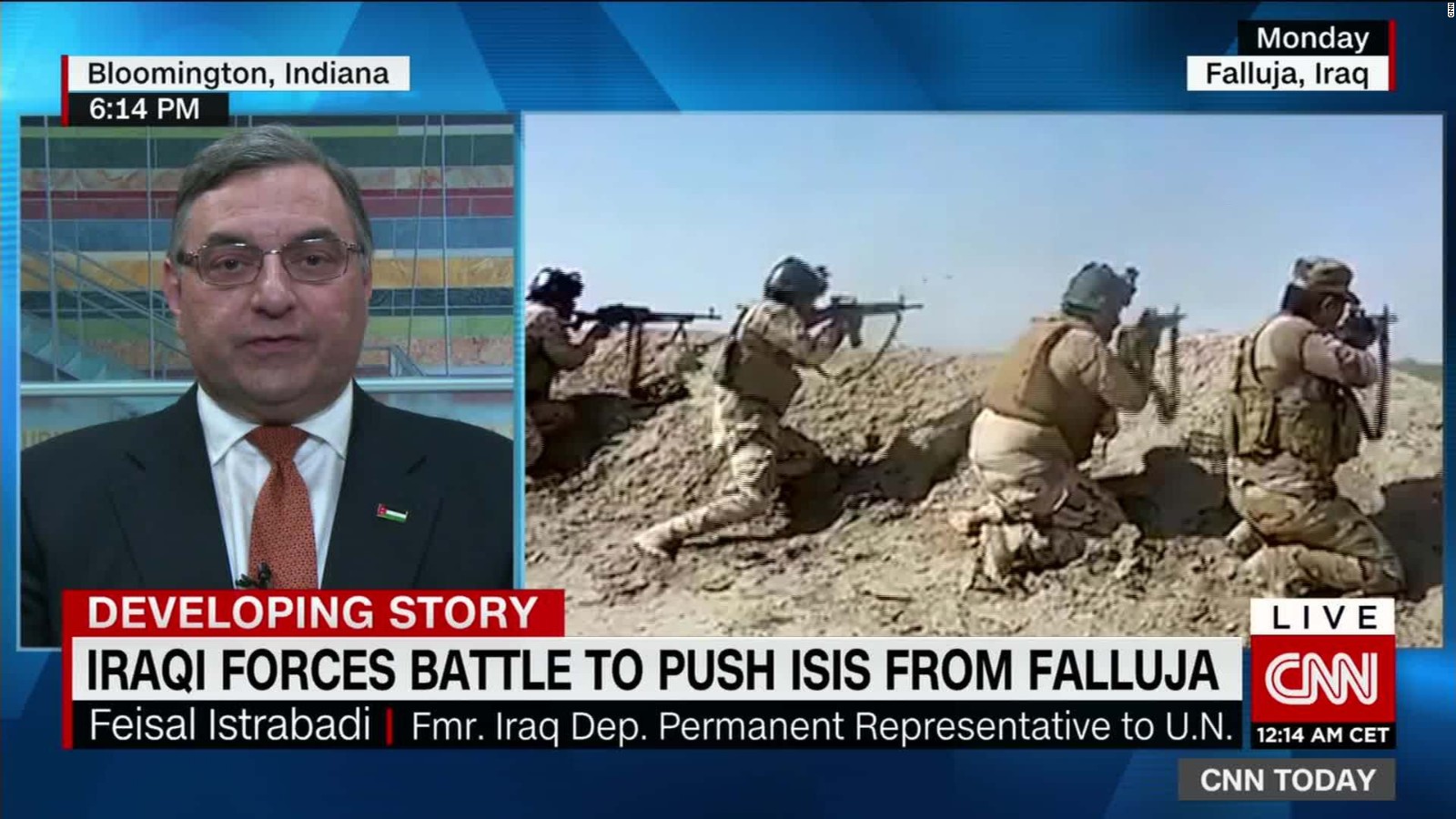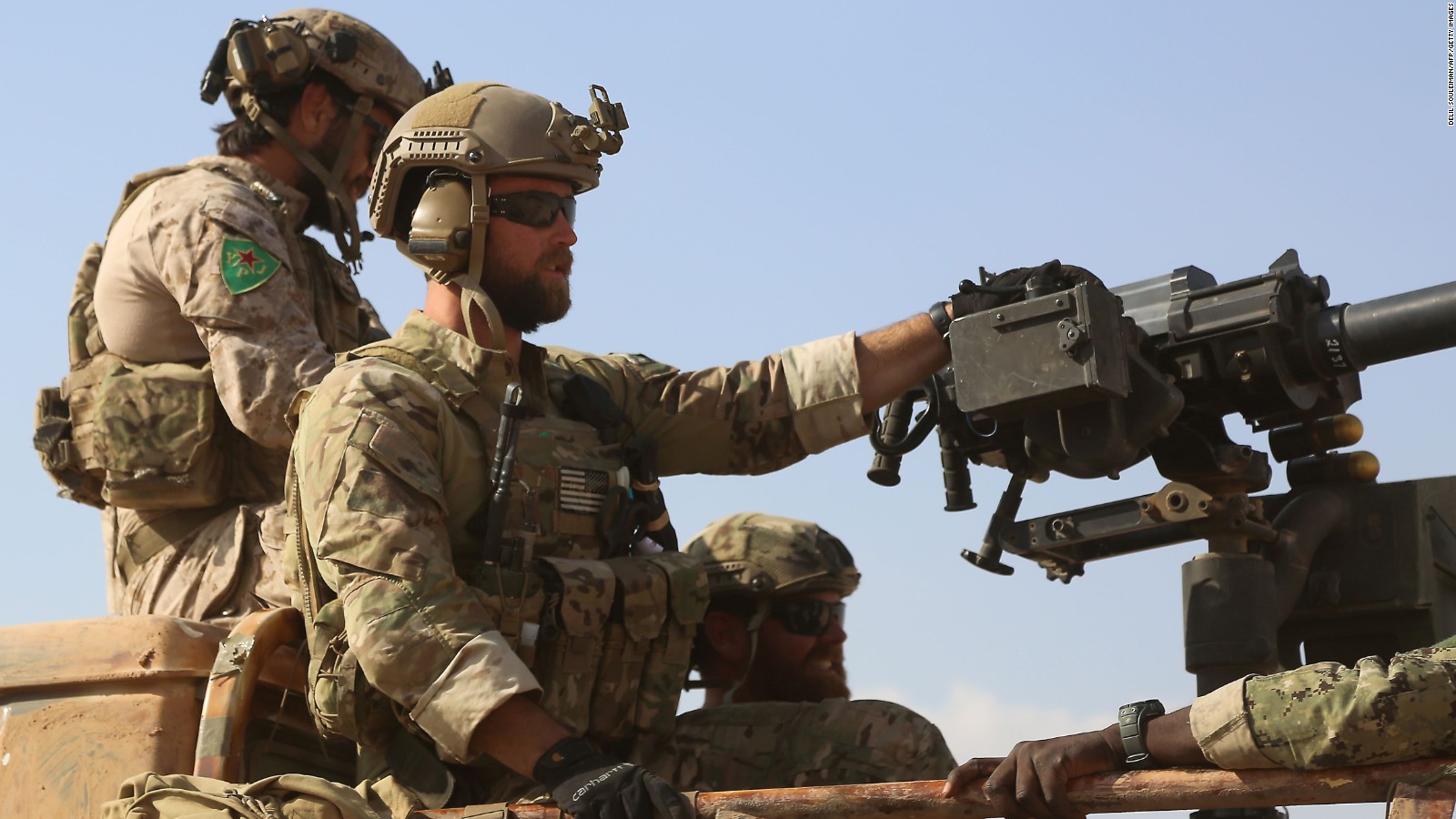
Iraq's ongoing military campaign to liberate the ISIS stronghold of Falluja
is being sensationally framed in too much of the media coverage and
commentary as a Shia versus Sunni war. Besides being inaccurate, this
does a disservice to both the Shia and Sunni Iraqis working hand-in-hand
to defeat ISIS.
Despite some attempts to portray the campaign in Falluja as Iran-led, it is being led by the Iraqis themselves
with support from both Iran and the United States. The tip of the spear
in Falluja is not an Iranian-backed paramilitary group but the
U.S.-created Counter Terrorism Service and its elite U.S.-trained
Special Forces known locally as the Golden Division. These forces,
besides being a mixed Shia-Sunni unit, are led by a Kurdish commander.
Voices from Falluja: What families took with them
Who is actually on the ground?
More
importantly, alongside both the Iraqi security forces and Shia
paramilitaries, there are thousands of Sunni tribal fighters who are
officially part of the state-sponsored Popular Mobilization Forces --
crudely, and again inaccurately, referred to in much of the Iraq
commentary as "Shia militias."
A
flashpoint of the Falluja coverage has been the Shia paramilitary
forces who played a key role in not just blunting ISIS offensives but
also in liberating much of the territory that has been retaken by Iraqi
forces since the army's humiliating defeat in June 2014. These Shia
forces are on the outskirts of Falluja and are not expected to be part
of a ground assault into the city. But exaggerated fears are nonetheless constantly raised over what would happen if Iraqi Shias enter a Sunni-dominated Iraqi city.
It
will be difficult to prevent retribution in any post-ISIS scenario and
indeed there have been documented cases of this elsewhere in the
country. But to continue to portray and place this violence within a
broader Shia versus Sunni narrative is a gross simplification of the
realities on the ground.
ISIS
systematically destroys the communities and cities they control through
ruthless co-optation of the local population. When a city is liberated
from ISIS, it is not just some Shia soldiers or paramilitary forces that
seek revenge but also the Sunnis who lived under the tyranny of ISIS'
occupation. It is the locals who have a much better understanding of who
the collaborators in their own city and neighborhood were.
Opinion: No easy victories in battle to free Falluja
'Nation's struggle against terrorism'
When Tikrit was liberated by Iraqi forces in March 2015, there was a fierce inter-tribal struggle as
locals took revenge against those who joined or helped ISIS. Even this
episode of Sunni-Sunni score-settling was portrayed in much of the
commentary as sectarian Shia-Sunni retaliatory attacks.
The relentless focus on sectarianism when discussing Falluja led one Iraq-based journalist to tweet:
"Falluja will take time, and will be very messy. But there's a current
of poor commentary that's more sectarian than the situation itself."
At
a time when sectarian dynamics is one of many factors fueling the
crises in Iraq and beyond, it is important for Western journalists and
analysts to not be more sectarian than the Iraqis on the ground actually fighting ISIS.
Iraq's fight against ISIS is not a sectarian war between Iraqis but a nation's struggle against terrorism.
It
is not surprising that much of the regional media portray the events in
Falluja as part of a broader sectarian war, especially when this serves
the political agendas of governments that control these outlets.
However, Western media coverage should be much more nuanced and
sophisticated and not play into ISIS' hands who desperately want to make
this a black-and-white sectarian war.
Source: CNN




No comments:
Post a Comment